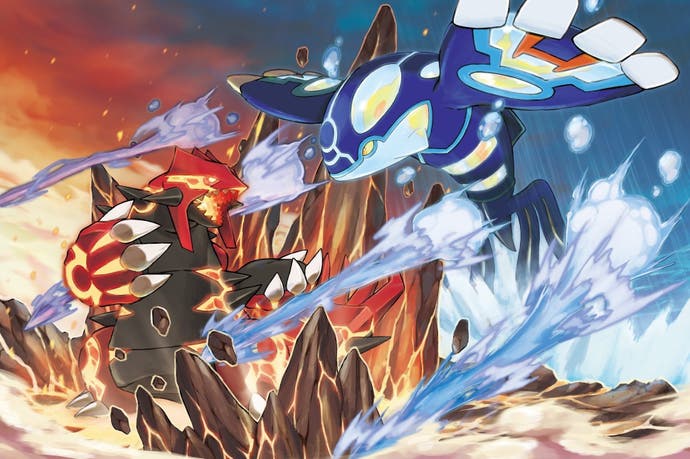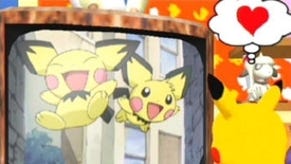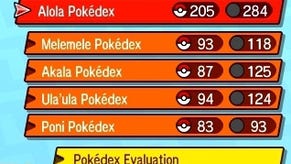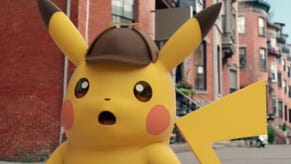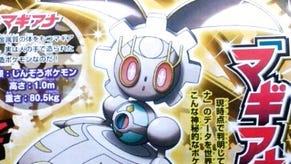Pokémon Omega Ruby and Alpha Sapphire review
Water, water everywhere.
As the remakes pile up, it's easy to become cynical about Pokémon. There's always a young hero, there's always a team bent on world domination, and there's always turn-based combat. It's easy to conclude that every few years Game Freak releases a slightly updated version of what they already have, before dashing off to collect their money.
Yet the more I play the series, the more I keep coming back to it, and the more I begin to notice its subtle evolution. The writing gets stronger, the moments more personal and enriching. The turn-based, JRPG-inspired combat at the heart of it all is just as suited to forming the backbone of these increasingly mature adventures as it was for genre greats like Chrono Cross.
Pokémon is good. It's not ironically good, and its strengths aren't fuelled by nostalgia. It's just plain good.
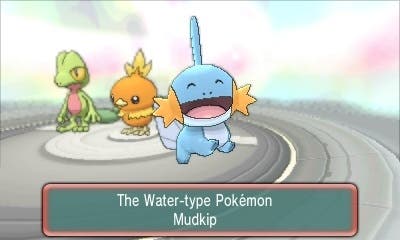
In Omega Ruby and Alpha Sapphire your tale begins, as it so often does, in a quiet town. Your family's just moved, but instead of trying to settle into your new home, you gear up to travel the world, growing closer to and with your Pokémon along the way.
Now, moreso than ever, that connection has some mechanical reinforcement. These games have been updated with some of Pokémon X and Y's best features including Pokémon Amie, a mode that lets you pet, feed and play with your pocket monsters. It reinforces the "virtual pet" analogy, and encourages you to take some time to spend enjoying some time with your friends.
The personal connection, especially if you take the time to give them specific names and endeavour to care after them as best as possible, becomes poignant and tangible. Awesome as it may have been to see my Swampert, whom I had affectionately named "Lumpy", sweep entire teams of opponents, when he was poisoned because of an error that I made I felt it. As soon as the match was over, I rushed him to a centre to have him looked after. That's a lot more intimate than my interactions with most games, and it's a small piece of why the series still holds weight - even after all these years.
The graphical bump to 3D that we saw in Pokemon X and Y is here, too, but I've been far more impressed with the world of Hoenn than I was with last year's Kalos. Its art seems brighter and more lively, its locales strangely more fresh than I would have expected given the age of Ruby and Sapphire. Many of Ruby and Sapphire's characters are more expressive and emotive than I remember, and while that's often played up for laughs, it also gave the entire cast a personality and style that they had lacked before.
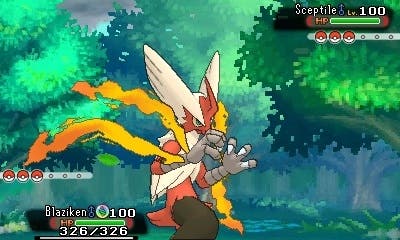
The foundation is the same as it was 12 years ago when the original Pokémon Ruby and Sapphire were released, but from the outset it's clear that these remakes are more than just a graphical overhaul. Where that extra care shows up is a little unexpected, however. Of all the improvements Nintendo could have made, it's the writing that stood out the most for me, and I don't think that's accidental.
Last year's Pokémon X and Y absolutely floored me with how emotive and biting its characters and plot were. Corny and hackneyed for sure, but the text was punchy, clever and remarkably deep for what is ostensibly a children's series. Of everything I read, one passage continues to stick with me:
Carved underneath a bench in a public transit station and left as a gift from your mentor Sycamore, there's a surprising weight in those fleeting lines. Many of my friends never seemed to find the message, and I admittedly only caught it because someone told me to look around until I found "something special."
While nothing in Alpha Sapphire (the version I spent most of my time playing) hit me quite as hard, it was a lot more direct with its philosophical overtones. Time and time again, the series villains suggested that from their perspective, I was the evil one, or that maybe I should take a moment to understand why they made the choices they did. And this isn't to say that the game ever gets into the kind of overt self-loathing and melodrama of a game like Spec Ops. These are just casual questions posed to the player, often with a gentle humorous slant.
The games' main conflict revolves around two nigh-identical gangs struggling for control of the world's resources. One, Team Magma, wants to revive the ancient beast Groudon and cover the world in land to give people more places to live. The other, Team Aqua, would rather drown the world in torrential rain with the ancient whale Kyogre to create a sanctuary for the countless marine Pokémon throughout the seas. As the protagonist, it's up to you to use your Pokémon to stop either team from destroying the world. It's superficial and it's cheesy, but that's okay. For adults, the quality and wit of the dialogue is there for you, while children can approach it from a simpler perspective. It's the same dichotomy you get in good Disney. It's approachable for the youngest among us, but maintains a layer of subtext for the older crowd.
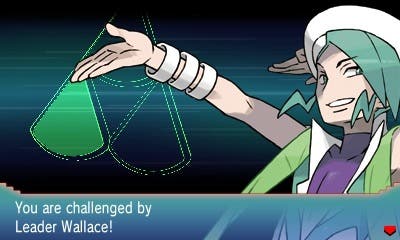
With the release of these remakes, I'm well into my 20s, but when the originals were released, I was a troubled teen, playing through a copy of Ruby on a stolen Game Boy Advance I had to keep hidden from my mum. Over the course of a few months, I steadily caught nearly every Pokémon I could, and tried to tackle the game's many mysteries one by one.
Some fans may recall just how obtuse the solutions for some of the puzzles in Ruby and Sapphire were - with a few of the rarer Pokémon requiring at least some knowledge of braille to find at all. Without a player's guide or friends to help figure things out, that sequence took me months to work out on my own.
I've had my Pokémon review copies for a few weeks now, and the experience of playing through these remakes alone - without any published guides - was eerily similar. It's rare in the digital age to keep secrets hidden for long at all, and despite the fact that both games have been out for a few days in the US already, it's actually kind of amazing to me that people haven't yet figured out all of the secrets these re-issues have to offer. Nintendo has tried so hard to bury all of this under layers of sleuthing and discovery and puzzle-solving feels like an odd, albeit enriching throwback to the early days of the Web. It's the closest many of us will likely get to genuinely exploring unknown territory.
It's these kinds of things that remind me that people love Pokémon for a reason. As tired as the series can often seem, these games have a strong emotive core laced with pieces of refined mechanical slices that, while often repetitive, still accomplish far more than newer series with weaker creative underpinnings.
